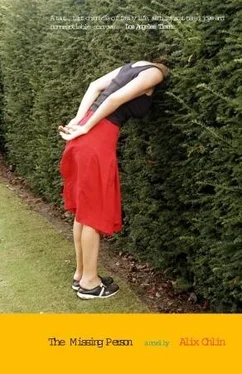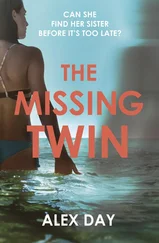“I think she had a child,” I went on. “In 1979. If you don’t remember the paintings, perhaps you remember the child.”
“The late seventies,” Harold Wallace said, “were not a time for children. It may be difficult for you to imagine now, in this age of prudery, but back then it was all fun and sex and singles and swingers. When people had children, they left the scene.” He shook his head and smiled at the rug as if at an old friend.
“You said you had some files? I’d love to have a look, if you wouldn’t mind. Maybe I could find something to jog your memory.”
“Oh, yes,” he said slowly, still looking at the rug. “I do have a few files. You’re welcome to look through them if you like, my dear, but you’re not likely to find much. I traded a lot of my paintings for — how shall I put it? — black-market goods and services, if you know what I mean. We all did, as I was saying before. Things you wouldn’t necessarily want on your books.” I sighed and stood up, the image of my father as a seventies swinger still floating through my mind. I pictured him in his glasses and his receding hairline, his shirt opened halfway down his chest, a drink in one hand and a girl in the other. It almost made me laugh out loud. “Well, thanks for your time,” I said.
Looking up, Harold seemed sad to see me go. “Are you sure you wouldn’t like a drink?” he said.
“I’m sure.” I scanned the living room. There were no traces of any other person, no family photos, nothing.
“Tell you what,” he said. “I’ll take a look through those files, and if I find anything I’ll give you a call.”
“I’d be very grateful,” I said. His expression suggested he was wondering how grateful, exactly, so I gave him my mother’s number and fled.
At the Route 66 Motel, I flung open the door and kissed Angus full on the mouth. He kissed me back, then gently moved me aside to get at a bag that was lying open on the floor. I saw a flash of metal and leather before he zipped it up. He was wearing work boots, but not the white coveralls.
“What are you doing?”
He didn’t say anything.
The room was empty of all our clutter. My own clothes lay neatly washed and folded on the bed, inside a plastic bag from the grocery store. I felt suddenly sick. “You’re leaving,” I said.
Angus put on his hat and pulled the brim down low on his forehead. His mouth was set in a strange flat line — strange because he smiled so much — and the creases around his eyes sank deeper into the skin than usual. I felt a horrid tingle in my blood, the onset of panic, and I sat down on the bed. He knelt on the carpet in front of me. My skin hurt; it was as if my body was grieving.
“I want to come with you,” I told him.
“Lynn Marie Fleming,” he said, “you are an obstinate person.”
“Can I come or not?”
“You don’t really want to. It could be dangerous. It could be, well, sublegal. It isn’t really your scene.”
“I’m so sick of people talking about scenes.” I sounded like a child, even to myself, and I straightened up and looked into his pale eyes. “Tell me the truth. Do you not want me to come because you want to protect me, or because you’re sick of me?”
There was a flash of freckled skin, and I was lying on my back on the bed, with Angus on top of me, his heart beating, slow and definite, against my chest. I could never figure out how he managed to move so fast.
“You know the answer,” he said.
“I’ll drive the Caprice.”
“Well,” he said, “we could use another car.”
At Wylie’s apartment, Irina smiled and waved enthusiastically, though I was standing only a few feet away, and I waved back, surprised by how pleased I was to see all of them, not just my brother, even Stan and Berto. They already felt like some kind of family. They were standing around the bare room, waiting, I realized, for Angus to show up. Wylie was slouching against the kitchen counter, and when he saw me he grimaced and said, “What are you doing here?”
“Don’t worry. I won’t mess anything up.”
He looked unconvinced. Angus walked up to him and whispered into his ear, their two heads close together: one hat-ted, the other bare and dark; one smile, one frown. After a minute Wylie shrugged and said, “I hope you’re right.”
Angus turned and clapped his hands. “It’s time,” he said.
Sometimes I forgot that my father was gone. It was as if he were on vacation or out of town, and in the back of my mind, that trickster of a spot, I had no doubt he’d be back. Then I’d remember that his absence was permanent, and couldn’t decide which was worse: the forgetting or the remembering, the loss of knowledge or its sudden return. He was fifty-one when he died, an absurdly young age, seriously ridiculous; an age that would force you to wonder what was wrong with his heart, potentially my own and others’ of my acquaintance, not to mention hearts in general, which seemed like flawed mechanisms all around.
Also there was the question of what I hated most. On one side was the fact that I was forgetting what he looked like. I knew he was angular and dark-haired, with hair bristling from his ears and nose; when I was little, I sometimes saw him in the bathroom, tweezing them out and swearing with pain, which made me feel both amused and sorry for him. But the way his eyes flicked rapidly from side to side when he talked, his rare laughter (highly prized by Wylie and me, because it was harder to get him to laugh than our mother) when we did something either funny or ridiculous, his tendency to fall asleep in front of the television and snore — at times I found myself recovering these things, and understood that I’d been losing them, that the reality of my father was receding and in its place were photographs, hardening.
On the other side was the fact that my brother looked a lot like him: the same dark hair, sharp shoulders, and slouch. Seeing Wylie bent over a map next to Angus was, however slightly, like seeing my father again, and I didn’t enjoy it at all. And the more I saw him, the more acutely I felt that slingshot process of remembering my own forgetting, the push and pull I’d stayed in New York to avoid. I thought of my mother’s voice on the telephone saying “Come home, you can’t have to work all the time,” and my own voice saying “I can’t get away.” We must have had this conversation fifty times since my father died.
And yet, I thought, looking at my brother, I’d been missing him, too. Missing people all around.
I stared over his shoulder at the map, even though he shot me a look of utter annoyance. I shrugged and said, “Don’t let me distract you.”
What they had was a map of the city, on which Wylie was highlighting, with a Day-Glo pink marker, a section of streets. I wondered if they had another sprinkler-related prank planned. I’d never met anyone who hated grass as much as they did.
“Up and down this whole street,” he was saying, “is water waste central.”
“Yeah, it’s hideous,” Stan agreed. “That is some ugly stuff.”
“I hear you, man,” Berto said glumly. He was eating corn nuts out of a plastic bag and, every once in a while, wiping his hands on his shorts. Sledge was lying there next to him, tenderly licking the fabric where this wiping occurred.
Irina sat nursing Psyche, a benevolent look on her face, and she motioned me over. “Isn’t it all highly exciting?” she said.
“I’m not sure,” I said. “What’s going on?”
“Our committee is executing the second strike of the summer. Action number two.”
“Something to do with pools, I take it.”
From across the room I saw Wylie look up, and knew that he was waiting to hear my reaction.
Читать дальше












